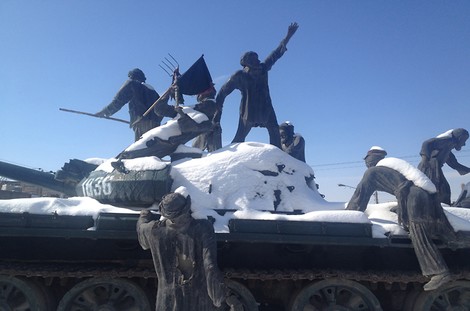Your podcast discovery platform
Curious minds select the most fascinating podcasts from around the world. Discover hand-piqd audio recommendations on your favorite topics.

piqer for: Technology and society Global finds Globalization and politics
Emran Feroz is an Afghan-Austrian journalist currently based in Stuttgart, Germany. He is regularly writing from Afghanistan, often focusing on the Middle East, Central Asia, drone warfare, refugee policies and human rights. Emran is writing in both German and English. His work has already appeared in international media outlets such as Al Jazeera, The Intercept, Alternet, The Atlantic or the New York Times and in various German and Austrian news papers and magazines.
How Resistance Against Communist Intervention Started In Afghanistan
A very readable piece by Ali Latifi, a colleague of mine who lives in Kabul.
It's about a crucial event of Afghanistan's history — the Herat uprising in March 1979.
It took place before the USSR's military intervention in the upcoming December, and it was against the dictatorship of the Afghan Communist regime in Kabul.
Until today, many Afghans consider the uprising as just and in favor of Afghan ideals.
"They changed the education. Suddenly, even the basic literacy curriculum was inundated with communist propaganda. How could we allow people who called all religion 'the opiate of the masses' to teach our children?" said Mashan, who took place in the uprising.
During these days, the Kabul regime killed and tortured thousands of innocent people. As a backlash, a radicalization among ordinary Afghans took place, and many of them took arms to resist.
One week after the uprising started, it was crushed by the regime with airstrikes and about 25,000 Afghans died.
"I just remember the sounds of the planes. I don't know if it was napalm or what, but suddenly I looked around and saw bloodied bodies everywhere," Qaderi, who also participated in the uprising, remembered.
